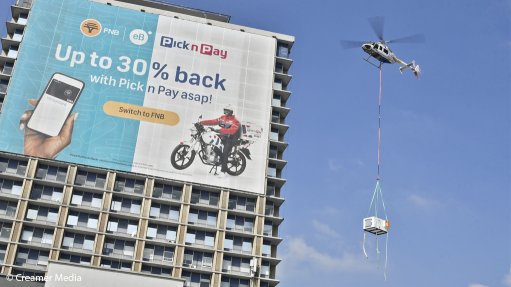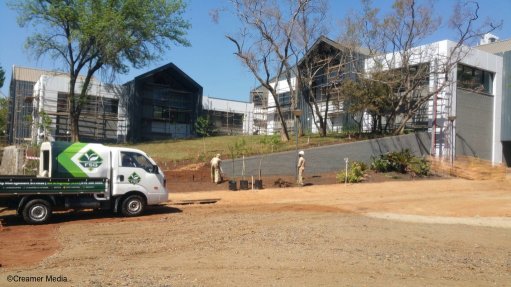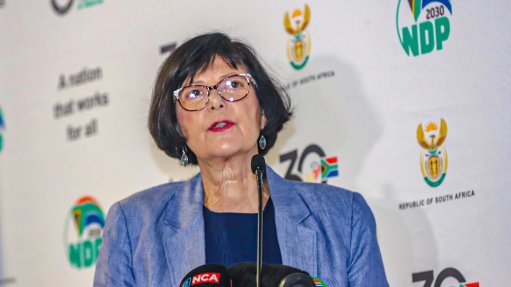African venture capital investments fell by 43% in H1
Venture capital investments in Africa fell by 43% year-on-year in the first half of this year according to a report published by venture capital body AVCA – the African Private Capital Association.
This is against a backdrop of relatively strong fundraising by African venture capital fund managers in 2022. According to AVCA, venture capital investors thus appear to be adopting a cautious approach to capital deployment, given the significant degree of market uncertainty which shows no signs of immediate resolution.
The AVCA report says the first half of this year saw 263 deals take place in Africa’s venture capital ecosystem, allocating a cumulative $2.1-billion of capital to 258 unique companies. This corresponds to a 40% decrease by both volume and value compared with the $3.5-billion raised in the first half of 2022.
At slightly over $1-billion raised each quarter, this contraction in startup funding is being referred to by some as a “funding winter” for African venture capital, AVCA notes.
Channels of capital to African startups have tapered off since the third quarter of 2022, in a belated but anticipated knock-on effect of the global macroeconomic downturn.
However, rather than a funding winter, AVCA believes the funding dips of the first and second quarters are better described as a “funding plateau”. When evaluated against the historical average for the period between 2017 and 2022, industry activity in Africa’s venture capital ecosystem this year compares favourably.
“A long-term lens is, therefore, necessary to temper overly pessimistic concerns of what may appear at first glance to be a nosedive in deal activity, particularly as the ecosystem comes down from a two-year trend of triple-digit acceleration,” AVCA says.
In contrast to the capital “free-for-all” going from the second half of 2021 into the first half of 2022, AVCA says venture capital investors are applying a more judicious approach to investment – but are still actively allocating capital to startups with strong fundamentals.
The reports shows that venture capital investors shied away from big-ticket funding rounds in the first six months of this year. Five super-sized deals raising just more than $1-billion took place in the first half of the year, falling from nine such deals that brought $1.3-billion to the industry in the same period in 2022.
Although the number of startups concluding deals with a value of $100-million or more fell in the first half of the year, the proportion of overall funding assumed by these large, high-profile funding rounds in each quarter remained largely consistent with the historical average.
AVCA notes that, while super-sized deals routinely comprise both equity and debt, venture debt is assuming a larger component and consequently playing a more prominent role in these funding rounds.
Although most acute at the late stage, the association says every investment stage during the period saw significant contractions in terms of both volume and value in the first half of the year.
On the early stages of the venture capital continuum, seed-stage deals assumed the largest proportion of venture capital deal activity in Africa in both the first and second quarters.
While this is a recurrent trend in Africa’s venture ecosystem, seed-stage deals accounted for a colossal 71% and 72% of venture deal flow to startups on the continent in the first two quarters of 2023, respectively.
Nevertheless, deal counts in this category fell by 55% from the first half of 2022, debunking to some extent early predictions that seed rounds would remain unaffected this year.
These initial predictions were based on the premise that the smaller ticket sizes characteristic of seed-stage deals would lend this investment stage a higher degree of insulation from global macroeconomic headwinds.
AVCA believes the anomalous dominance of seed-stage deals is, in part, owing to the virtual absence of late-stage deals on the continent in the first half of the year.
Just two late-stage deals took place in the first quarter while three occurred in the second quarter, accounting for a cumulative $500-million of venture capital. Given the significant market uncertainty in developed markets, the fall of the later stages is no surprise to AVCA, as global venture capital investors, which disproportionately lead the charge in such deals, continued to pull back.
Nevertheless, even with this slowdown in late-stage funding, a number of high-profile deals took place in the first half of the year.
AVCA shows that West Africa attracted the highest overall volume of venture capital deals in Africa in the first half of the year, closing out the first quarter with 35 deals and the second quarter with 33 deals executed – equivalent to 22% and 31%, respectively.
However, East Africa came in second after strong dealmaking activity in the first quarter. Additionally, while both regions dominated in terms of the number of deals taking place, the value of funding raised in the first half of the year lagged slightly behind other regions, namely Southern Africa at 19% and North Africa at 18%.
While startups with a multi-region geographic footprint typically account for a small proportion of venture capital deal volume each year, AVCA says that they routinely comprise the largest share of deal value, with the first half of the year being no exception.
This trend is particularly visible in the second quarter, which saw multi-region deals command just 7% of venture capital deal volume in Africa, but a significant 60% of deal value between April and June.
Venture debt remained relatively unaffected in the first half of the year, with deals in both the first and second quarters equalling or coming close to the volumes and values recorded in the same periods the preceding year.
Overall, 25 venture debt deals totalling just more than $400-million took place in the first half, using a variety of instruments including direct lending, convertible loan notes, lines of credit in both local and hard currency, and bond issuances.
“While venture debt is being used with increasing frequency in Africa’s early-stage ecosystem, it remains an emerging trend on the periphery rather than a key component of the African investment ecosystem at present. However, increased uptake of venture debt strategies is highly likely in the short-medium term, as founders seek to maintain growth through the present macroeconomic downturn,” AVCA says.
The association believes that, as access to liquidity becomes more challenging, growth-stage startups may turn to venture debt as a financing alternative or cash cushion for business development and market expansion.
Comments
Press Office
Announcements
What's On
Subscribe to improve your user experience...
Option 1 (equivalent of R125 a month):
Receive a weekly copy of Creamer Media's Engineering News & Mining Weekly magazine
(print copy for those in South Africa and e-magazine for those outside of South Africa)
Receive daily email newsletters
Access to full search results
Access archive of magazine back copies
Access to Projects in Progress
Access to ONE Research Report of your choice in PDF format
Option 2 (equivalent of R375 a month):
All benefits from Option 1
PLUS
Access to Creamer Media's Research Channel Africa for ALL Research Reports, in PDF format, on various industrial and mining sectors
including Electricity; Water; Energy Transition; Hydrogen; Roads, Rail and Ports; Coal; Gold; Platinum; Battery Metals; etc.
Already a subscriber?
Forgotten your password?
Receive weekly copy of Creamer Media's Engineering News & Mining Weekly magazine (print copy for those in South Africa and e-magazine for those outside of South Africa)
➕
Recieve daily email newsletters
➕
Access to full search results
➕
Access archive of magazine back copies
➕
Access to Projects in Progress
➕
Access to ONE Research Report of your choice in PDF format
RESEARCH CHANNEL AFRICA
R4500 (equivalent of R375 a month)
SUBSCRIBEAll benefits from Option 1
➕
Access to Creamer Media's Research Channel Africa for ALL Research Reports on various industrial and mining sectors, in PDF format, including on:
Electricity
➕
Water
➕
Energy Transition
➕
Hydrogen
➕
Roads, Rail and Ports
➕
Coal
➕
Gold
➕
Platinum
➕
Battery Metals
➕
etc.
Receive all benefits from Option 1 or Option 2 delivered to numerous people at your company
➕
Multiple User names and Passwords for simultaneous log-ins
➕
Intranet integration access to all in your organisation

















